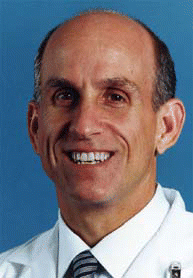Despite Dr. Posner’s contention that enrollment is slow because of resistance by the US academic radiation oncology community, other researchers see more pragmatic reasons. Head and neck cancer is uncommon and many trials are competing for a limited population, said Andy M. Trotti, MD, Professor and Director of Radiation Oncology Clinical Research at H. Lee Moffitt Cancer Center at the University of South Florida in Tampa. Some patients are not eligible for an intensive or prolonged therapy program due to comorbidities. And it takes extraordinary coordination among the treatment team to deliver a timely and complete course of induction followed by full concurrent chemoradiation therapy. Some centers just cannot pull it off.
Explore This Issue
May 2008Finally, he pointed out, some physicians, like the Oklahoma group, have already started using induction therapy as their standard of care, and are thus not interested in enrolling patients in a trial where they may not get induction. Some groups are already believers in induction, while others think more data are needed to call it a new standard, he said.
When asked directly if he thinks there is a lack of enthusiasm among radiation oncologists for induction chemotherapy regimens, Dr. Trotti said that the big problem was that there were no data comparing the approach head-to-head with existing chemoradiation protocols. I think most radiation oncologists are very open to using induction if it is clearly proven better than concurrent chemoradiation. We will not be able to deny a patient induction if the current trials show a survival advantage. But there are no mature results on any of these at the moment, he said.
Impact of a Shifting Patient Population
Another complication for the field and for the ongoing clinical trials is the shifting profile of head and neck cancer patients. Previously, patients with head and neck cancer tended to be older, with a history of smoking and drinking. More recently, however, a growing fraction of patients are younger and develop the disease following infection with human papillomavirus (HPV). Some researchers estimate that as many as 60% to 70% of base of tongue and tonsil cancers, which are the susceptible sites, are now due to HPV infection. (Such cancers are not associated with tobacco or alcohol use, according to recent work from the Johns Hopkins University School of Medicine.)
Not only do these new patients tend to be healthier than individuals with tobacco- or alcohol-associated head and neck cancers, but the cancers themselves seem to be more responsive to therapy.

Leave a Reply